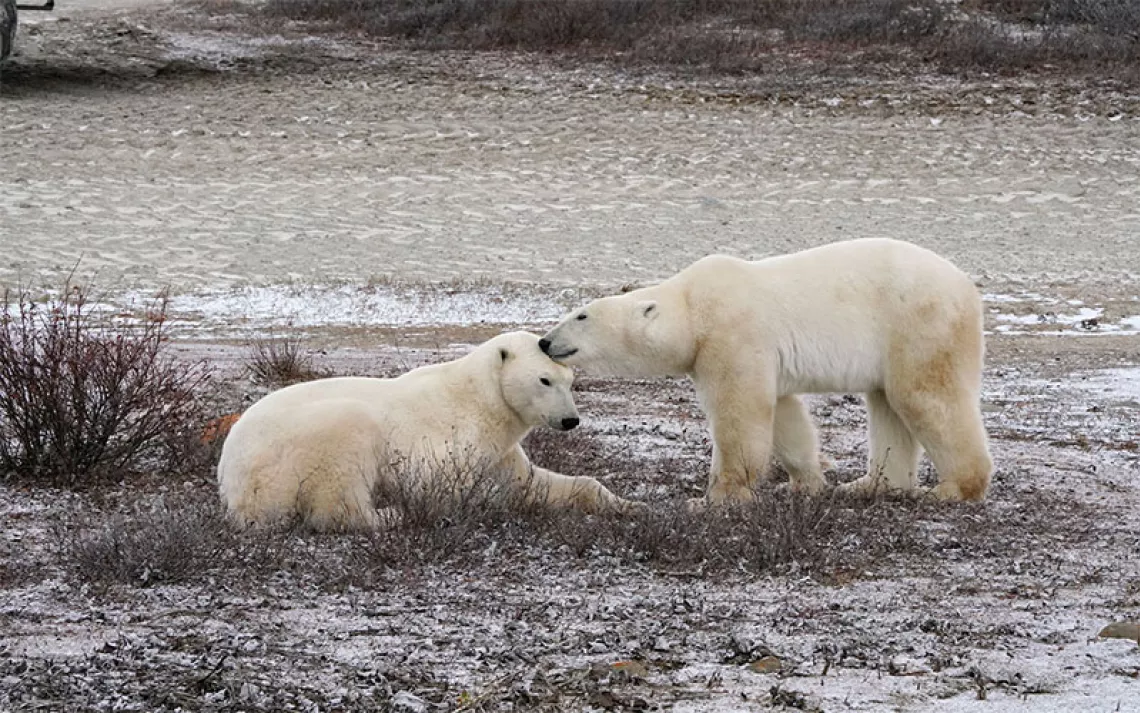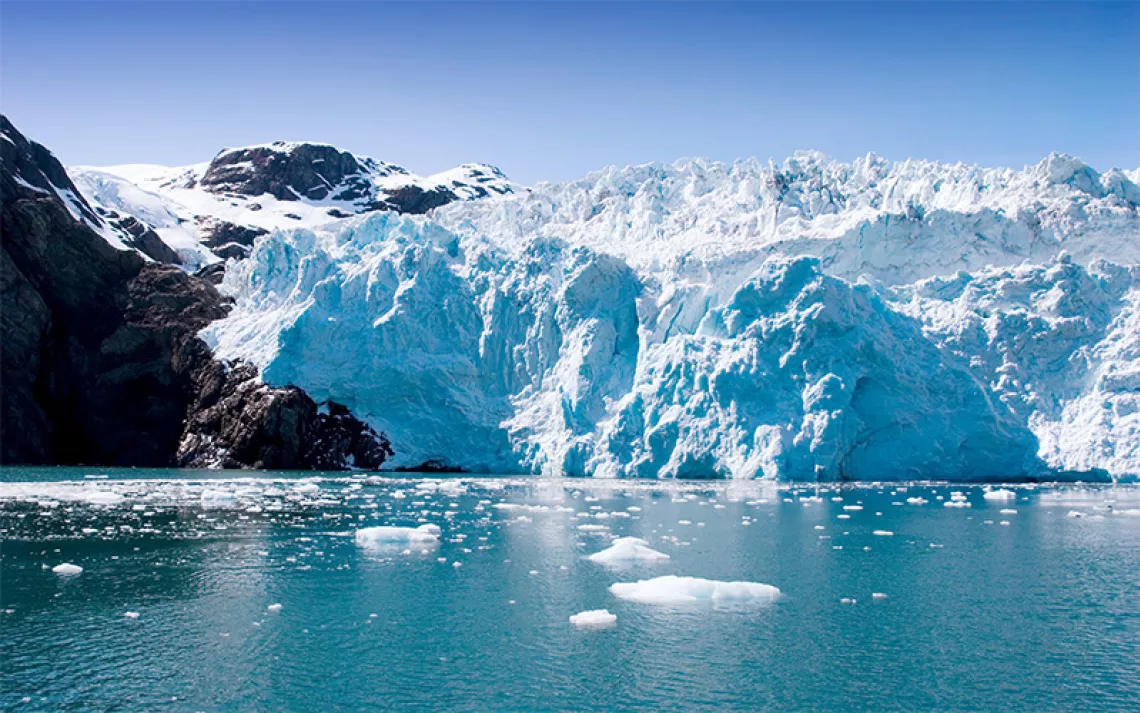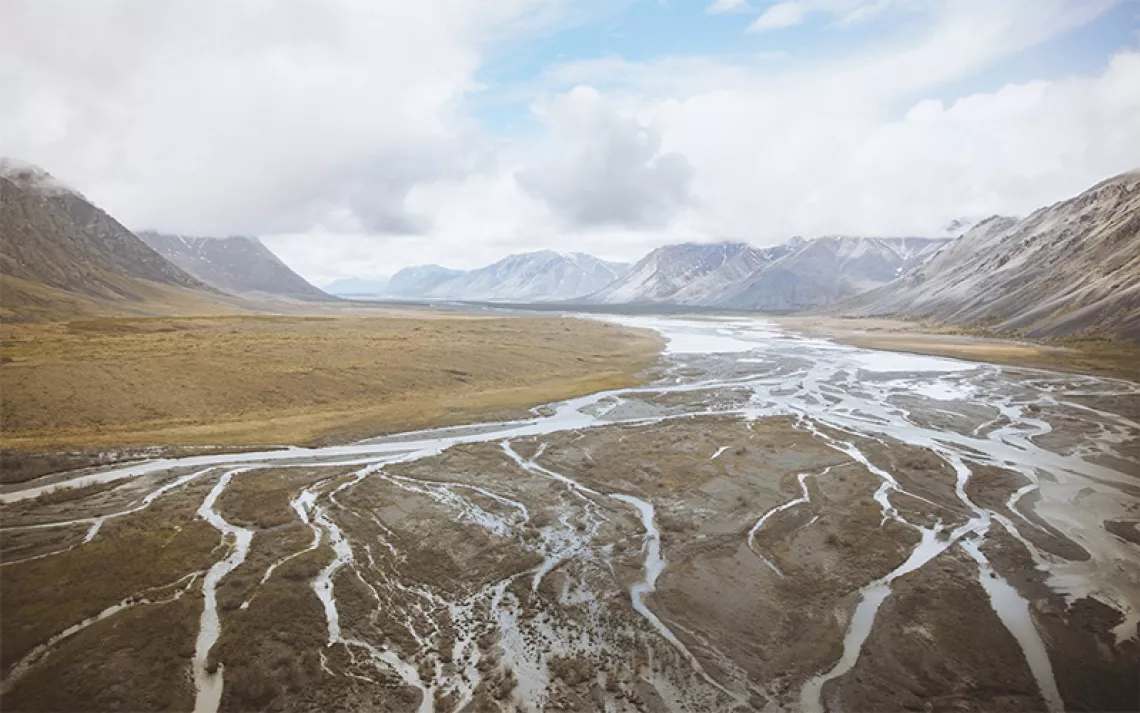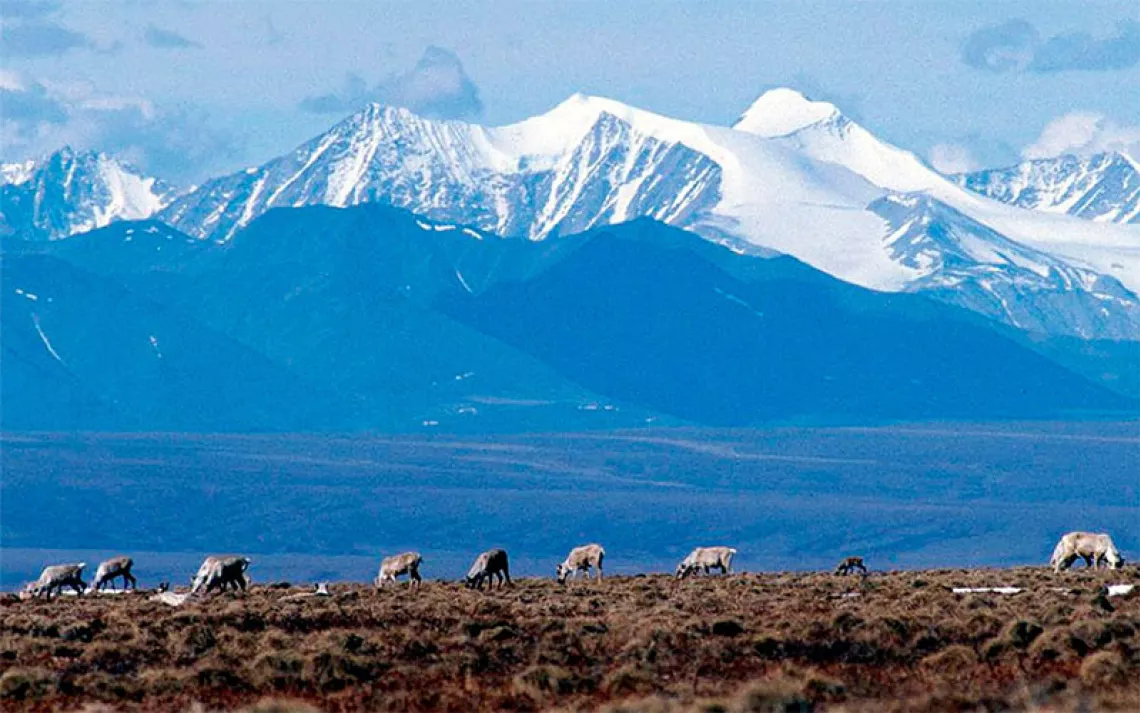Ben Jealous in Conversation With Chris Hill
The Sierra Club executive director gets ready to visit the Arctic National Wildlife Refuge

Ben Jealous (left) and Chris Hill (right)
Nearly every summer for close to 20 years, the Sierra Club has hosted a trip through the Arctic National Wildlife Refuge as part of our efforts to protect the iconic wilderness from oil drilling. In a few weeks, Ben Jealous, the organization's newish executive director, will travel through the tundra and experience the place for himself along with Chris Hill, director of the Our Wild America campaign. They recently talked about their expectations for the adventure. This conversation has been edited for clarity and length.
Ben Jealous: I'm so excited to join you on this trip and support your work, which is replicated thousands of times every year throughout the Sierra Club, as member-leaders organize others to explore, enjoy, and protect. Going to the Arctic National Wildlife Refuge is going to be new for me.

Chris Hill: When you came on as the new executive director, one of the first things I set out to do was to get you on an Arctic Refuge trip. We've been a leader in this fight for decades. This is one of our longest-running campaigns, and we do all this work in collaboration with the Gwich'in First Nation.
You know, Alaska seems so far away for a lot of folks. But in actuality, it's a place that should be top of mind for people, especially people who care about our environment and addressing climate change. Where we're going is really important, and it's super eye-opening for folks to be able to see that. And then to be able to go back home and advocate for this special place and for the communities, like the Gwich'in, that depend on it. We have seen time after time that if we are able to bring somebody to a special place like this, it then holds a special place in their heart and ignites a fire within their soul to advocate for it. I am excited for you to experience the Arctic and see the wildlife—the caribou, bears, and wolves. To feel the air and smell the tundra. It's incredibly powerful.
Jealous: I've been around all kinds of bears, except for polar bears. I've never been around wolves, so wolves are going to be new for me. And I'm especially excited to be joining you, Chris, a fellow Black tree nerd with roots in Maryland.
Hill: It is an amazing privilege for us to be able to go to the Arctic National Wildlife Refuge. And on top of all of that, for two prominent Black people to go to the refuge together is an amazing thing to see.
Obviously not everybody is able to have these experiences and do this work. That's why our Outings programs provide scholarships, so people who may not be able to afford it can get out on the land. Being out in nature is just so important.
Jealous: It was the forests of the Northern California coast and the Sierra Nevada that forged my commitment to preserving wild places and the planet. So I'm eager to get into a new place that I've never been to before.
For me, this is both a trip of renewal and a homage to my first mentor in the environmental movement, John Martin, a climate scientist who used to go to the Arctic regularly. He spurred my curiosity about the Arctic and also my curiosity about climate change. He was one of the first people to talk to me about where our planet is headed and how might we save Earth for humanity. I'm excited that his son, an award-winning photographer named Ian Martin, will be joining us on this trip.
I have a question for you: What's the current status of oil drilling in the Arctic Refuge, especially after Trump-era legislation allowed for drilling there?
Hill: Right now, there's no oil development in the Arctic Refuge, and actually no oil company owns any of the leases from the rushed sale held under the Trump administration. Just this past April, ExxonMobil announced to investors that it has no plans to lease in the refuge. Other oil companies like Chevron and BP are also moving away from drilling there. The whole plan of development is being reconsidered by the Biden administration under what is called a "supplemental environmental impact statement."
But this doesn't mean that we're completely out of the woods. We need to continue to put pressure on the Biden administration to get the supplemental environmental impact statement correct—and also keep pressure on the oil companies that might be interested in drilling in the refuge.
Toward the end of this year will be a critical moment for the Biden administration, particularly after the decision to lease the Willow site to ConocoPhillips—which is also in the Arctic but not in the refuge. So we're continuing to do our advocacy work in close collaboration with the Gwich'in Steering Committee. And we will see what happens.
Jealous: Those principal-to-principal relationships are so important. I'm excited to support you in deepening those bonds between our organization and tribal nations.
Hill: Last winter and spring, you did a nationwide listening tour with Sierra Club staffers and members. I feel like in some ways this Arctic Refuge trip is an extension of the listening tour. What did you learn from all those conversations?
Jealous: The listening tour continues and will continue until I get to all 65 chapters, which I hope to do before my one-year anniversary here next February.
Some of my most transformative moments of the listening tour were being with our members in the outdoors, on the trail. Seeing how we continue to replicate the tradition of empowering people to lead others in exploring the most beautiful places in our country and inspiring them to fight that much harder to protect them.
I think Sierra Club Outings maintains the best of John Muir's legacy. That work really helps to renew the spirit of our organization every day.
Hill: You've talked a lot about your passion for getting people in the outdoors and sustaining that part of our DNA. What are some of your other aspirations for your first year as the executive director?
Jealous: When I join you in the Arctic, I will be briefly stepping away from the ongoing push to ensure that the IRA—the Inflation Reduction Act—has the maximum impact in spurring the growth of green industries and reducing carbon pollution. Also, we will push forward even harder to go beyond coal and to literally electrify everything.
Life has taught me that it's important to balance long stretches of doing with intense moments of reflection. And I'm hoping to come back from the Arctic even more inspired.
Explore
Take a Sierra Club trip to the Arctic National Wildlife Refuge. For details, see sc.org/outings-arctic.
 The Magazine of The Sierra Club
The Magazine of The Sierra Club



